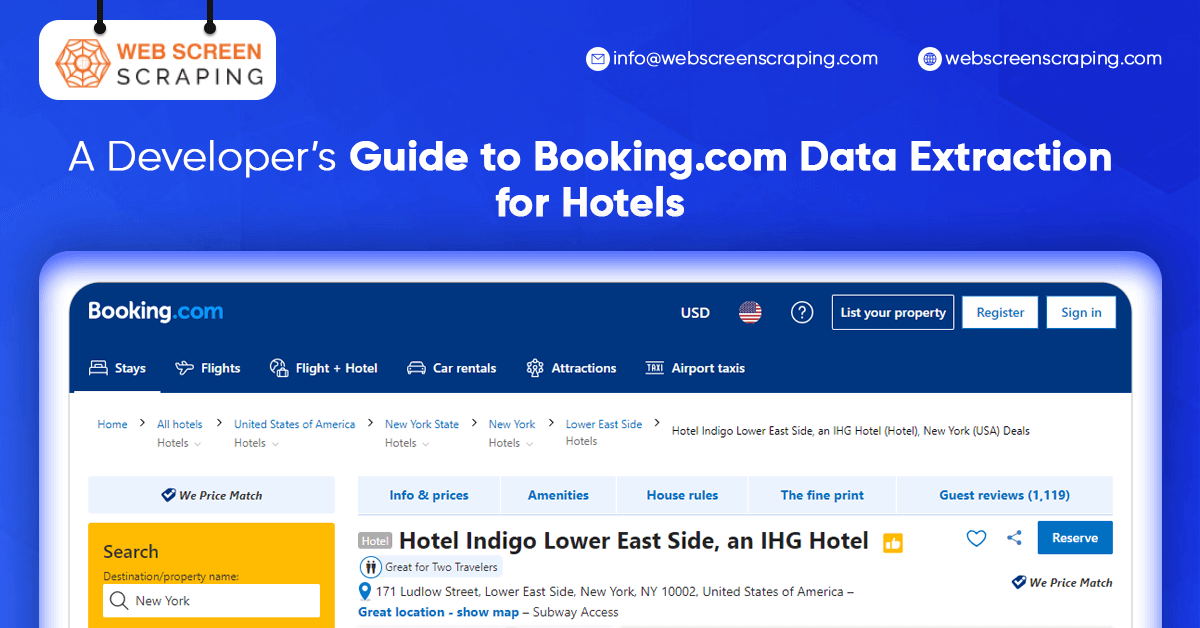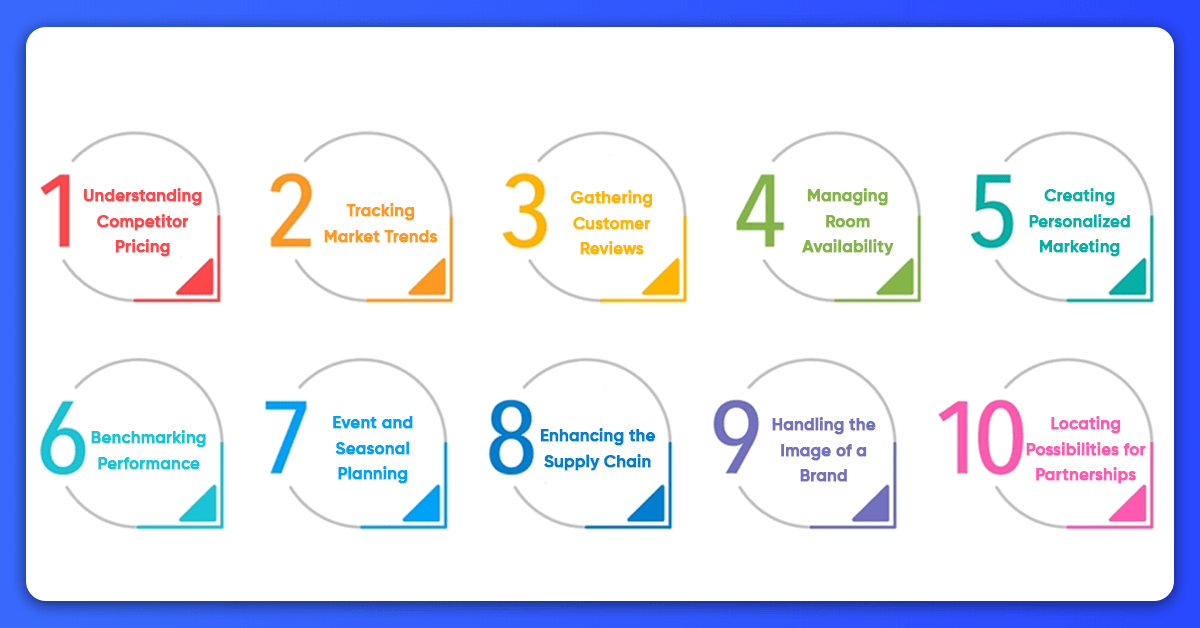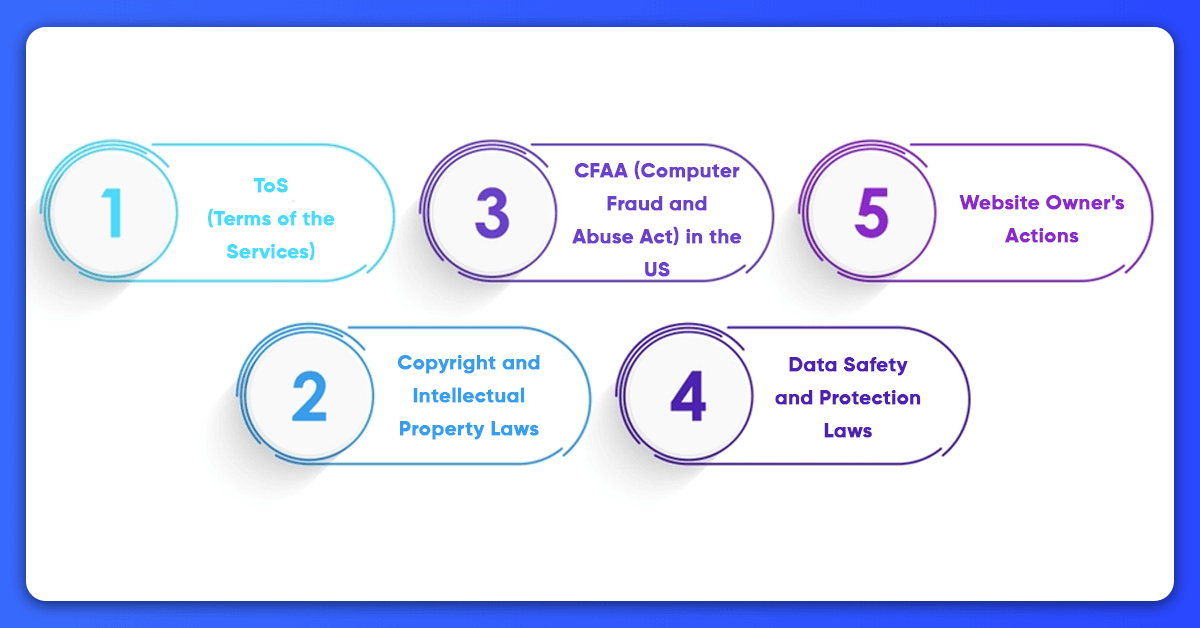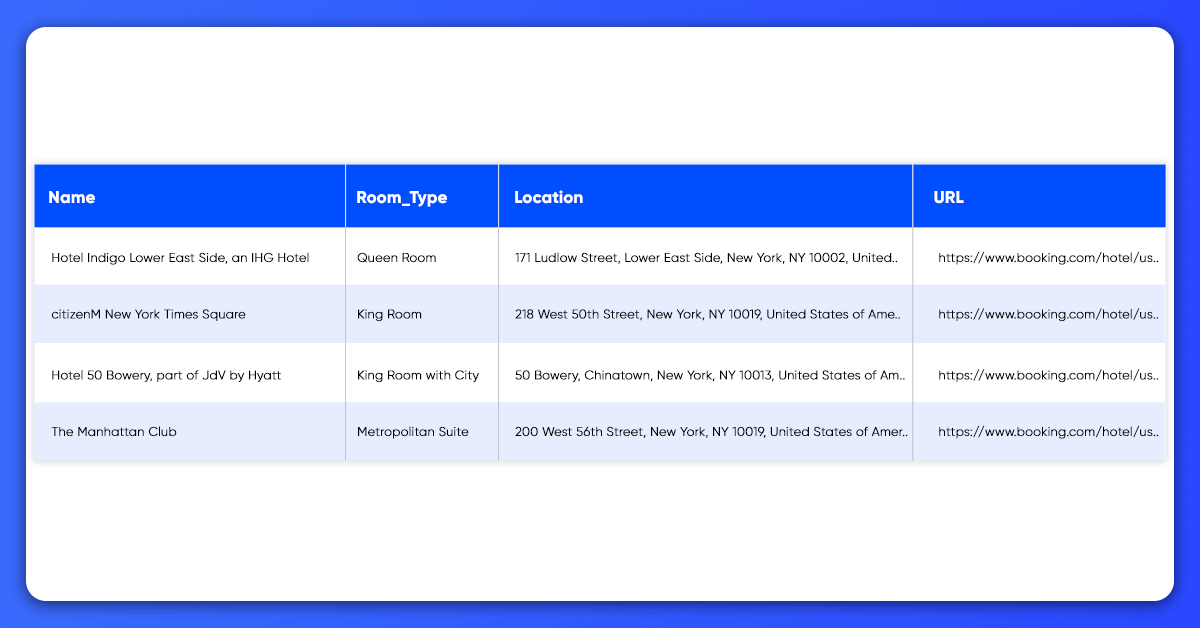
Booking.com is one of the the world's leading online travel agencies by revenue. Booking Holdings also owns well-known travel brands like Priceline, Kayak, and Agoda. In 2023, Booking Holdings made over 21 billion dollars, their highest revenue ever.
In April 2024, Booking.com was the most visited travel website globally, with about 556 million visits. It was far ahead of Tripadvisor.com, which had around 176 million trips, and Airbnb.com, which had about 101 million visits. In April 2024, booking.com, among travel and tourism websites worldwide, Priceline.com, the main brand owned by Booking Holdings, took the lead in terms of visits, with more than 557.9 million visits. That month, TripAdvisor.com, aribnb.com, and Expedia.com followed the other domains listed above. As for the total traffic causing a breakdown of booking, digital by country, America occupies the highest market share of site visits in April 2024, considering the United Kingdom and Germany.
Online travel agencies like Booking.com and Expedia offer various services, including hotel bookings, flight reservations, and car rentals. According to a Statista survey, as of December 2023, Booking.com was the most popular website in the US for booking flights online. It was the most popular option for booking hotels and other private lodgings, followed by Hotels.com, Airbnb, and Expedia.
Benefits of Data Scraping in the Hotel Business

The hotel industry adapts fast to the new digital environment to become successful. Hotels can get important information via web scraping that will enable them to enhance guest satisfaction, expand their menu, and make wiser judgments. This results in more reservations and more guests
Understanding Competitor Pricing
As hotels use web scraping to be updated on how their competitors are pricing their rooms, all hotels have better equal temperance. In the process, they can regulate their prices correctly so that they remain attractive to potential customers while not imposing too high or too low total costs.
Tracking Market Trends
Using the petabytes of information gathered on which types of rooms are being booked, what destinations are popular, and what amenities the guests pick, hotels can figure out the market's flow. Being informed allows them to create a variety of marketing plans. To satisfy the needs of the clients, they might also enhance their services.
Gathering Customer Reviews
The technology of scraping reviews helps hotels be aware of what guests say about their visitor experience. This input is helpful in tracking where people like and where they don't like what hotels are providing, and hence, hotels can address the shortfalls if any problem is identified.
Managing Room Availability
Hotels can employ web scrapping to track the number of rooms still open and the going rates on different booking websites. This allows them to master better stock management and maintain stable booking and occupancy rates.
Creating Personalized Marketing
Using data on what people like about a hotel and how they behave, hotel brands can shape their advertising messages to reach particular types of audiences. Rather than sending out generalized offers and promotions, more personalized marketing campaigns increase the chances of potential guests becoming actual bookings.
Benchmarking Performance
The hotels will be able to monitor their performance, for instance, how many bookings they have made and how much revenue they are getting per room, and contrast all these against the hotels in direct competition with them. This is how their positive side can be recognized, and the areas that require more work come to light.
Event and Seasonal Planning
Starting from leisure occasions, remarkable event periods, and peak tourism seasons, hotels can tune up their pricing and marketing efforts to make the most of those times with high demand. In doing so, they let themselves gain more ground during the peak periods when people have the most desire to go out.
Enhancing the Supply Chain
Price information on goods and services from several providers can be obtained using web scraping. This reduces hotels' costs by helping them negotiate better prices and manage their supply chains.
Handling the Image of a Brand
Hotels can preserve a favorable brand image by monitoring online mentions and reviews. Rapid recognition and resolution of online visitor comments and interactions can increase customer satisfaction and loyalty.
Locating Possibilities for Partnerships
Data from travel platforms might highlight potential collaborations with travel agents, tour operators, and other service providers. These partnerships can enhance a hotel's offerings and reach and increase its customer base and user satisfaction.
Is It Legal to Scrape Booking.com Data?

The legality of web scraping, including scraping Booking.com, can be done for diverse factors, such as service terms, intellectual property rights, specific national laws, and recent court rulings. Below is an in-depth discussion of these factors.
1. ToS (Terms of the Services)
Most of the websites, including Booking.com, include clauses in their Agreements that specifically prohibit automated data scraping. The website can take legal action against you if you violate these conditions. For example, Booking.com's ToS can state that users cannot use automated systems to access their site without permission. Scraping the site would be breaching this agreement.
2. Copyright and Intellectual Property Laws
Copyright laws and other intellectual property rights protect the information and data on Booking.com. Scraping this data, especially for commercial use, could infringe these rights. For instance, copying hotel descriptions, reviews, images, and other proprietary content without permission can be a copyright violation.
3. CFAA (Computer Fraud and Abuse Act) in the US
The Computer Fraud and Abuse Act (CFAA) prohibits unauthorized computer system access in US. According to court interpretation, scraping is covered by this statute, mainly if it entails getting over security measures. If Booking.com uses security measures like CAPTCHAs or login requirements, bypassing these to scrape data could be deemed unauthorized access under CFAA.
4. Data Safety and Protection Laws
Data privacy laws, such as the European Union's General Data Privacy and Protection Regulation (GDPR), impose strict rules on processing personal data. If scraping involves collecting personal information from Booking.com users, you must ensure compliance with GDPR or similar laws, which can include obtaining user consent and ensuring data security.
5. Website Owner's Actions
Websites like Booking.com can use technical defenses against scraping, such as rate limiting, IP blocking, and CAPTCHAs. Ignoring or opposing these safeguards can be interpreted as an attempt to bypass security features, perhaps leading to legal consequences.
How to Scrape Booking.com Data?
Booking.com data scraping can be done using a Python library called BeautifulSoup. It is an external library in Python that aids in scraping webpage data based on HTML or XML. BeautifulSoup is a toolkit capable of deriving simple or complex Python idioms from a parse tree. In short, BeautifulSoup is a tool for putting HTML in an easy-to-navigate format and obtaining elements after that.
Library Imports
Requests are used to send HTTP requests and receive answers, while BeautifulSoup (bs4) extracts information from HTML texts.
Panda is a tool for analysis and data manipulation.
from bs4 import BeautifulSoup import requests import pandas as pd
An overview of the HTML code Web scraping requires understanding a website's HTML structure to pinpoint the precise components that must be removed.
London is my destination for this project (link).
This is how it appears:

To look at HTML elements on a web page, you can take advantage of the browser's developer tools. Here’s how to do it in Google Chrome:
Launch Google Chrome, and then go directly to the specific page you must investigate.
The suffix of "right-click the element" you want to inspect and choose "Inspect" or shortcut "Ctrl + Shift + I" on Windows/Linux and "Cmd + Shift + I" on Mac for the Developer Tools panel
Developer Tools allows you to view the HTML source code of the web page in a tab called Developer Tools. The object on the screen should have a yellow dotted outline on the right panel.
Here, you can use the Elements tab to travel all the HTML trees. You can choose any part of the page you want to investigate with your mouse right-click. When you click on an element, the panel highlights the corresponding HTML code in the line of the studied component. You can edit the properties and attributes of the element in both the Styles and Computed tabs.
By taking advantage of the browser’s developer tools, you can see and evaluate a web page's HTML structure, which is very important for implementing web scraping projects.
Obtaining HTML from a web page You can utilize Python's requests package to submit an HTTP request to the website's server and receive the HTML content to obtain the HTML from a Bootstrap-enabled website.
Code
url = 'https://www.booking.com/searchresults.html?ss=London&ssne=London&ssne_untouched=London&label=gog235jc-1DCAEoggI46AdICVgDaFCIAQGYAQm4ARfIAQzYAQPoAQH4AQKIAgGoAgO4ArDuuaEGwAIB0gIkZmJhYjE4YzAtNDdhMy00MmY1LTk2NWItN2UzOTgyNTk1OWEx2AIE4AIB&aid=397594&lang=en-us&sb=1&src_elem=sb&src=searchresults&dest_id=-2601889&dest_type=city&checkin=2023-05-06&checkout=2023-05-07<fd=6%3A1%3A5-2023%3A&group_adults=2&no_rooms=1&group_children=0&sb_travel_purpose=leisure&selected_currency=USD&soz=1&lang_changed=1'
headers = {
'User-Agent': 'Mozilla/5.0 (X11; CrOS x86_64 8172.45.0) AppleWebKit/537.36 (KHTML, like Gecko) Chrome/51.0.2704.64 Safari/537.36',
'Accept-Language': 'en-US, en;q=0.5'
}
response = requests.get(url, headers=headers)
After the page retrieval, we give the appropriate parser (in this example, BeautifulSoup's "html.parser" parser) and the HTML content to generate a BeautifulSoup object.
soup = BeautifulSoup(response.text, 'html.parser')
To explore the HTML tree and retrieve data from the webpage, utilize the produced soup object.
We will extract the following data from a list of hotels:
After the page retrieval, we give the appropriate parser (in this example, BeautifulSoup's "html.parser" parser) and the HTML content to generate a BeautifulSoup object.
- Name of hotel
- Location
- Cost
- Reviews and Rating
Extraction of Data
# Find all the hotel elements in the HTML document
hotels = soup.findAll('div', {'data-testid': 'property-card'})
hotels_data = []
# Loop over the hotel elements and extract the desired data
for hotel in hotels:
# Extract the hotel name
name_element = hotel.find('div', {'data-testid': 'title'})
name = name_element.text.strip()
# Extract the hotel location
location_element = hotel.find('span', {'data-testid': 'address'})
location = location_element.text.strip()
# Extract the hotel price
price_element = hotel.find('span', {'data-testid': 'price-and-discounted-price'})
price = price_element.text.strip()
# Extract the hotel rating
rating_element = hotel.find('div', {'class': 'b5cd09854e d10a6220b4'})
rating = rating_element.text.strip()
# Append hotes_data with info about hotel
hotels_data.append({
'name': name,
'location': location,
'price': price,
'rating': rating
})
Establishing a DataFrame
You can use Beautiful Soup to extract the appropriate data from a hotel list, and then you can use the data to alter and save it in a pandas DataFrame.
hotels = pd.DataFrame(hotels_data) hotels.head()

Making a CSV file
hotels.to_csv('hotels.csv', header=True, index=False)
Best Practices for Legal and Ethical Booking.com Web Scraping
It is crucial to keep the ethical standard as high as possible by making sure that the scraper solely crawls or scrapes the openly available data because it is unlawful to scrape data that is inaccessible to any person.
Request Access
Contact Booking.com to request permission to scrape or access their data through an official API. This can prevent legal issues and ensure compliance with their policies. Compliance with Laws
Legal Advice
Seek advice from legal professionals to make sure that your scraping operations abide by all applicable rules and laws, particularly those about data protection. Understanding the legal framework in your jurisdiction and the jurisdiction where Booking.com operates is crucial.
Respect Terms of Service
Thoroughly read and adhere to Booking.com's Terms of Service. Avoid any activities explicitly prohibited in these terms.
Use Public APIs
If available, utilize public APIs provided by Booking.com. APIs are designed to give structured access to data while respecting the site's terms and conditions. They often come with usage limits and specific terms that ensure data access is controlled and legal.
Conclusion
Web scraping is an excellent tool widely used to collect information about booking websites. The site calculates and analyzes loyalty programs and provides insights into various marketing strategies developed by academic institutions, companies, and individuals in travel. Utilizing data mining that includes hotel prices, reviews, and availability, users can make intelligent choices and create in-depth reports.
Nonetheless, it would help to be cautious about web scraping since it involves legal and moral constraints. Always check Booking.com's Terms of Service to ensure you're not violating any rules, and try to get permission to use available APIs when possible. By respecting these considerations, you can successfully and responsibly extract and use data from Booking.com.

